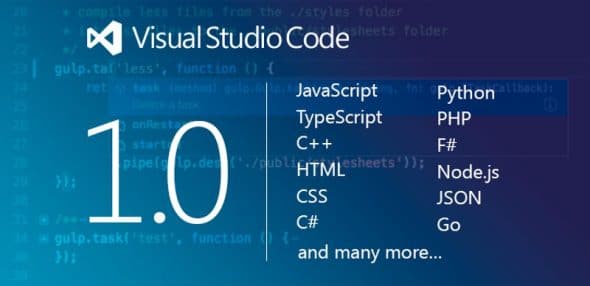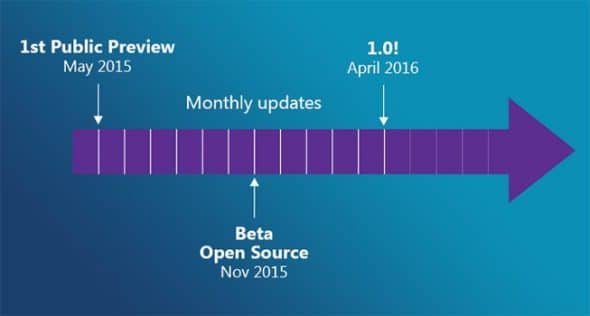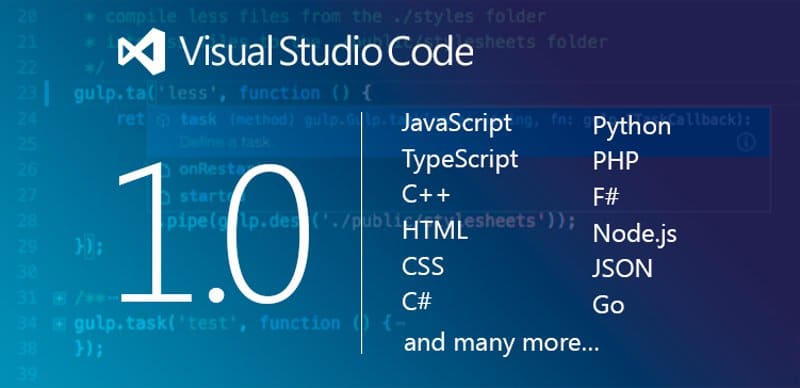
Microsoft has released Visual Studio Code 1.0. This new version is the latest upgrade to the open source code editor and debugger that the Redmond company launched in April last year.
Visual Studio Code was debuted to help developers with new editing and debugging tools. While the initial build of the editor was not available as an open source offering, it received a new update in last November that made its source code public.
Unlike its previous versions, Visual Studio Code 1.0 is touted to be “fully localisable”. It comes in nine different languages and features like full keyboard navigation and support for screen reading. Additionally, there is accessible navigation for visually impaired developers. These are that tweaks that would encourage more developers to consider Code for their developments.
Microsoft claims that since the release of its public preview in May last year, Visual Studio Code has been installed by more than two million developers. Moreover, there are over half a million developers who actively use the web-based code editor each month.

Although the initial build of Visual Studio Code was designed for developments on JavaScript and TypeScript, it can now handle technologies like C++, Go, Python, PHP and Reactive Native among others. The new version also brings stability improvements and bug fixes.
“Getting to ‘1.0’ over the last few months has been about more than features. We have worked with the community to further improve stability, fixing hundreds of bugs. And we’ve pushed hard on getting the best performance we can out of the editing experience,” Microsoft’s Visual Studio Code team writes in a blog post.
Visual Studio Code isn’t similar to the traditional Visual Studio package as it uses Web technology Chromium and works with extensions for Node.js, Go, C++, PHP and Python.
Microsoft is indeed targeting Visual Studio Code beyond individual developers and enterprises. It considers that some Fortune 500 companies are also deploying the new tool to develop new creations for their audiences. Well, this seems to be a new step by the software giant to uplift its presence in the growing world of open source.









































































